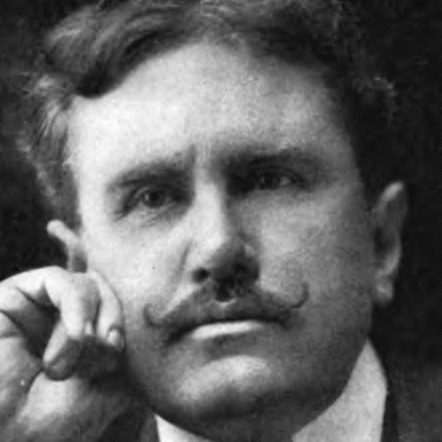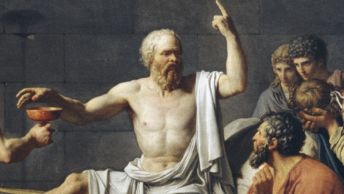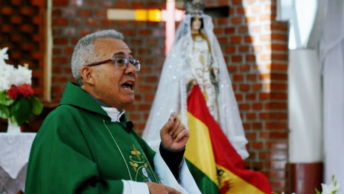Toward the end of the 19th century a man in North Carolina named William Sydney Porter was convicted of embezzlement or stealing from his employer, and sent to prison. Though a convicted criminal, his short life ended up having a happy ending—for it turned out he was a talented author capable of sharing important lessons or truths. Using the pen name O. Henry, Porter, by the time of his death at age 48, had written over 300 short, simple stories known for their appealing characters, unexpected turns, and surprise endings. One of the most famous of these was called “The Gift of the Magi.”
In this story, a very poor young married couple named Jim and Dela were deeply in love with each other. As Christmas approached, Dela worried about getting Jim a present. She knew the perfect item to give him: a watch chain for his gold watch, which was a treasured family heirloom; the problem was that she didn’t have the money. Then an idea occurred to her: she could cut off her long beautiful hair and sell it to a wig factory. This is what Dela did on Christmas Eve, and as she returned to their tiny apartment, she wondered what Jim’s reaction would be. When Dela opened the door, Jim was waiting with a neatly wrapped box—his present to her. Seeing her short hair, tears came to Jim’s eyes, and without saying anything, he handed her the box. Opening it, Dela discovered a beautiful set of combs that would have been perfect for her long hair; at the same time, Jim opened his box and discovered the gold chain for his watch. Only at that moment did Dela realize that just as she had sold her hair to buy Jim a chain for his watch, so he had sold his watch to buy her the combs for her hair.
Some people might consider this to be a tragic or ironic ending, but most people agree it’s actually a beautiful one—not because of the gifts themselves, but because of the love they symbolize (Mark Link S.J., Illustrated Sunday Homilies, Year B, Series I, p. 17). So it is with the gifts the Magi, or Wise Men, brought to Jesus; though they had value in themselves, their true importance lay in the worship and adoration they represented. No one told the Magi that they had to follow a star to a distant land and there give homage to a newborn child, but they knew in their hearts that it was the right thing to do—and this made their motives pure, noble, and holy. The same principle applies to us. Jesus seeks the gifts of our worship, adoration, and service—and these things are most valuable when we present them not out of duty, but out of love.
The Readings on the Feast of the Epiphany speak of God’s glory, and His personal invitation to us to share in it. The Book of the Prophet Isaiah foretells a coming day of rejoicing, when Jerusalem would be glorified and her importance acknowledged by all the world; pilgrims would come from distant lands, bringing offerings and gifts. This prophecy was literally fulfilled by the coming of the Magi; however, there’s also a spiritual meaning, as St. Paul explains. Through the Jewish people, God’s light entered the world, offering salvation for all nations, and not only for the Jews themselves. Through the Lord’s generosity everyone can be a part of His Kingdom; however, it is necessary to respond to God in this same manner. The Magi were willing to do this; they came to worship the newborn king without a desire for personal gain. King Herod, however, showed a very different spirit; he was concerned with worldly power and glory, and with holding onto what he already possessed. Glorifying God and doing His will was of little importance in the king’s calculations and decisions. Herod’s evil plan to kill the infant King, of course, was thwarted, and soon afterwards his earthly glory disappeared when he himself died in agony and despair. The Magi or Wise Men, however, returned home safely, and haing been honored throughout history, now share in the glory of Christ’s Kingdom.
We acknowledge God by acting out of duty, but we glorify Him by acting out of love. We know the rules of our Faith, such as the Ten Commandments and the teachings of the Church, and it is important to follow them—but just going the motions or simply obeying rules isn’t enough. For example, if we ask our own children to do something for us, we’d much rather they obey us out of love than out of fear—and the same is true for God. It’s good to come to Mass every weekend, but if we don’t participate while we’re here, we’re not fully worshipping the Lord. It’s necessary to avoid hurting others, but if we don’t actively respond to the needs of the people around us, we’re not yet true members of God’s family. It’s important to acknowledge Jesus Christ as our Lord and God, but if His will isn’t truly at the center of our lives, we’re not really living as we should. The outward signs of worship are important, but not enough—for God looks into our hearts and sees our intentions and desires. Half-hearted gifts bring us little spiritual benefit; only when we give generously to the Lord can we truly expect to grow in His grace.
Each year in December there’s the annual joke that the Christmas plays in Washington D.C. have to be cancelled because they can’t find three Wise Men there. We might wonder how wise our entire society is, since its priorities are often badly mistaken, its decisions are sometimes made without true conviction, and its values are frequently lacking commitment and meaning. This must never be true of us as Christians. The Lord doesn’t ask us to perform miracles, travel vast distances to present Him with costly gifts, or otherwise do the impossible, but He does seek our wholehearted worship, and ask us to repent of our sins and learn from our mistakes, as did the author who became known as O. Henry. Living in this manner is more valuable than gold, frankincense, myrrh, or any other material item we might give. Duty can prompt us to offer our gifts to God, but only love makes them truly great in His eyes. Learning and accepting this truth is the real “Gift of the Magi,” and this lesson is one for us to practice throughout the coming year.








